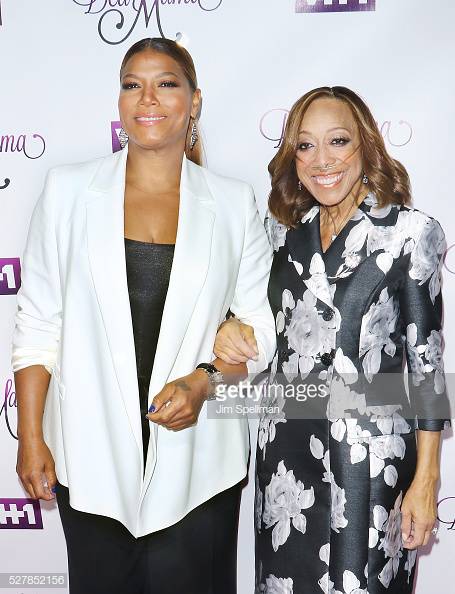Black History Month is a commemorative month to celebrate the lives of those who are significant in the history of the African Diaspora. These people stem from different backgrounds including artists, activists, inventors, academics, scientists, musicians, actors, and many more. Although these people are different in profession, they are all unified with the goal of improving the lives of African Americans. In accordance with Black History Month, February is also American Heart Month, a commemorative month to highlight the importance of heart health in resolving heart disease and failure – the #1 leading cause of death in the United States and worldwide. During both Black History Month and American Heart Month, I would like to introduce Queen Latifah: The Celebrity, The Caregiver, The Heart Health Advocate.

Singer Queen Latifah and her mother Rita Owens attend the VH1’s “Dear Mama” taping at St. Bartholomew’s Church on May 2, 2016 in New York City. (Photo by Jim Spellman/WireImage)
A native of New Jersey, Queen Latifah first began her career in music, as a rapper and later as a jazz singer. As a musician, she released seven studio albums, two of which were jazz-inspired singing albums. Queen Latifah had a very successful music career with sales over 2 million records and a Grammy Award for her single U.N.I.T.Y. Alongside her music career, Queen Latifah was also a very successful actress with an Emmy Award, a Golden Globe Award, three Screen Actors Guild Awards, and two NAACP awards. Her work in film and music was followed by a career in business, when she became the CEO of the record label that managed her, Flavor Unit Records and Management. As a musician, actress, producer, and businesswoman, Queen Latifah is exalted as one of the first female hip-hop pioneers changing the role for black women in music and music business.
Although Queen Latifah may be seen as a larger than life icon with her successes in the film and music industry, she was also a caregiver for her mother, Rita Owens, who was diagnosed with heart failure in 2004. “It was kind of frightening at first, but once you get over the initial shock of it, it was now: What do we do? And that was where the learning process began,” said Queen Latifah in a 2015 interview. She turned her fear into motivation, launching the Rise Above Heart Failure movement in partnership with the American Heart Association (AHA) in 2016, which could be observed across Twitter with the hashtag: #RiseAboveHF. Queen Latifah used her platform to raise awareness about the chronic disease by sharing her story as a caregiver and a heart health advocate. Since her campaign with the AHA in 2016, she has partnered with other organizations including the Preventative Cardiovascular Nurses Association (PCNA) and has appeared on numerous shows to raise awareness of heart failure and to offer advice on how to improve heart health.
As a celebrity, Queen Latifah has laid a foundation in both film and music for future generations to follow, proving that the sky is the limit for Black women. As a caregiver, she has shown us that she is human, empathizing with those going through similar situations. “The truth is, caregiving can be hard. Like most things in life, there is a certain element of trial and error. When I look back, I realized I’ve learned a lot from my past experiences. Like anybody else, my mom and I are human,” she has said. She had every right to keep these moments private, but instead she used her platform to share her experience, her knowledge, and the importance of heart health. Through her work as a celebrity, caregiver, and a heart health advocate, Queen Latifah epitomizes Black History Month and American Heart Month.
The opinions expressed in this article are those of the author and do not necessarily reflect those of the Diverse Elders Coalition.

